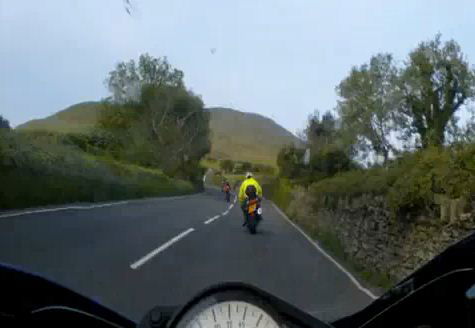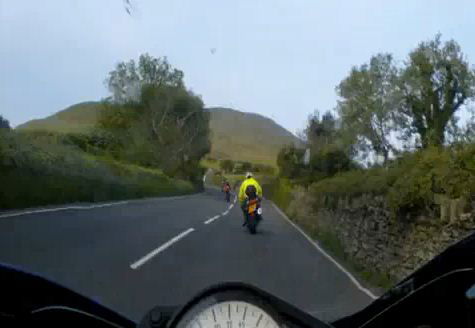Isle of Man’s limit-free roads might breach human rights
Coroner says the lack of speed limits could contravene European Convention on Human Rights


“Everyone's right to life shall be protected by law.”
That is the key to Article 2 of the European Convention of Human Rights. And Isle of Man coroner John Needham has said that the Island’s lack of speed limits on roads outside towns might fall foul of it.
It all comes down to interpretation but the European Court of Human Rights has ruled in the past that under Article 2 there may be an obligation for states to take preventative measures to protect lives. Speed limits might be considered such preventative measures.
Mr Needham’s comments came at the inquest into the death of motorcyclist Davy Jones, who died after hitting a stationary dustbin lorry at last year’s TT. Recording a verdict of accidental death, and pointing out that Mr Jones stuck to speed limits where they were applied, he said:
“I am troubled by the speed involved here. If it was not as high as 160 mph as estimated by the eyewitnesses then as I have found travelling at over 120mph along a straight and at or around 100mph around the blind bend of a country road is in my view extremely hazardous. A seemingly permissive attitude of the Isle of Man Government in choosing to have no speed limit at all applying on certain roads in my view raises the spectre of it failing in its duty to protect the lives of its citizens and visitors to its shores under Article 2 of the European Convention on Human Rights.”
“This is the second inquest relating to a fatality at the 2012 TT Festival where I have found that speed is a factor. Indeed, I have found in the present case that speed is even more of a factor than I did in the last case. I referred to, previously in that case, how some bikers view riding the TT course as being an extension or substitute of a track day. I am afraid that such attitude is in my view fostered by de-restricted roads.”
“As coroner at previous inquests I have resisted entering into the political decision regarding a national speed limit for the Isle of Man. However the facts of this case are sufficiently stark such that I am duty bound to raise the issue that a lack of a national speed limit appears to be a policy of Government which is putting innocent lives at unacceptable risk. Motorcycles are so quick these days and the roads are sufficiently busy that the maintenance of such a policy appears to me to be highly questionable. That decision is for the politicians but I am duty bound to raise the issue. I also raise the point that a decision may be unpopular but ultimately the state has to act responsibly in a grown-up fashion to protect all people sometimes from risks that they wish to impose upon themselves.”
He made the recommendation that the Isle of Man’s Department of Infrastructure should “revisit the issue of the imposition of a national speed limit in the interests of protecting the safety of its road users and in accordance with its positive duty to protect life under Article 2 of the European Convention on Human Rights.”
What are your thoughts? Is the Isle of Man’s attitude to speed limits a refreshing one, putting responsibility back on the shoulders of grown-up road users, or should Human Rights force them to slow everyone down for their own good and that of others?
You can read the whole verdict here: http://www.judgments.im/content/J737.htm











